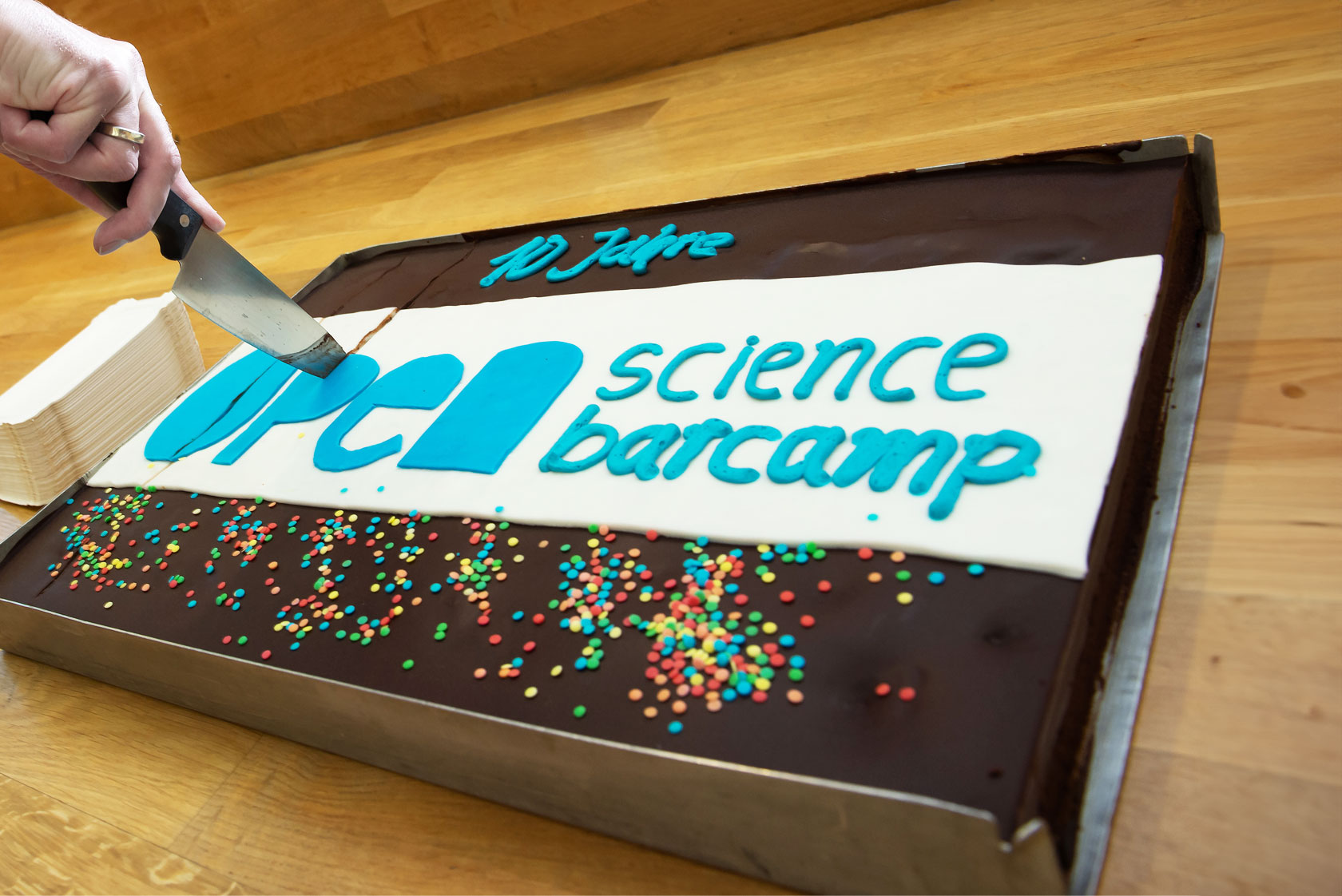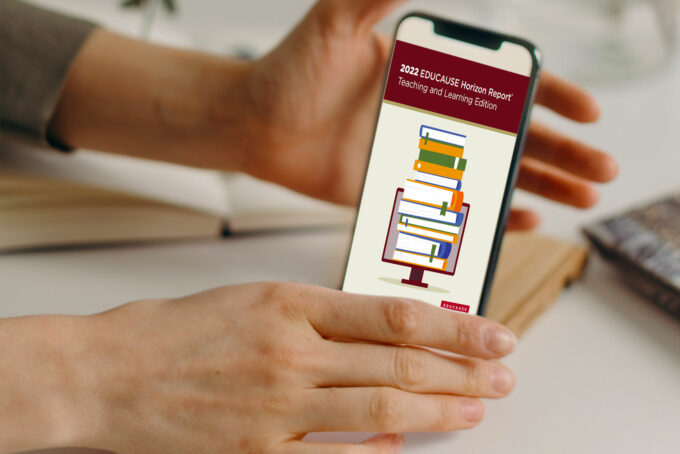
Open Access Conference: Reputation Without a Paywall?
Whether Open Access is a cure or homeopathy and putting the measurement of science on the test bench were some of the topics at the conference "Reputation without a paywall". Rômulo Lima and Ralf Toepfer have summarised the highlights from the three thematic blocks "Science Communication and Reputation", "Open Access as a Criterion for Reputation" and "Impact Factor and Metrics as Reputation Criteria".
by Rômulo Lima (Ibero-American Institute – Prussian Cultural Heritage Foundation) and Ralf Toepfer (ZBW)

On 8 and 9 October 2024, the University and State Library Darmstadt hosted the conference “Reputation without paywall? Academic publishing in the digital age” (German) to mark the tenth anniversary of the Digital Publishing Working Group (German) of the association “Digital Humanities in German-speaking countries” (DHd) (German) at University and State Library Darmstadt. The conference brought together experts from various fields to discuss findings on academic publishing in times of transformation contracts and the increasing importance of Open Access. The presentations and discussions covered a wide range of topics, such as the consequences of the Open Access transformation and new publishing behaviour for the academic reputation system, specifics of reputation building in different disciplines and Diamond OA alternatives to established commercial publishers. Topics also included social media and reputation building, new criteria for evaluating scientific quality, post-reputational alternatives to scientific practice and the importance of reputation from different perspectives. The conference was divided into the thematic blocks “Science Communication and Reputation” (1), “Open Access as a Criterion for Reputation” (2) and “Impact Factor and Metrics as Reputation Criteria” (3). A fish bowl discussion concluded the conference.
Science communication and reputation
In the keynote speech by Gerd Lauer (Johannes Gutenberg University Mainz), the tension between scientific reputation and Open Science was examined from a historical perspective. What was originally kept secret and even cryptised or disseminated strictly inter pares has developed since the 17th century into a system of scientific recognition that still forms the basis for modern scientific communication today: Research results are published and the authors build up their reputations in this way – often in competition with each other. This fundamental structure of reputation building still exists today and is taking on new forms with recent developments in the field of digitalisation. The so-called “Maxwell-Garfield system”, that is the combination of commercialisation of scientific results with the quantification of the influence of journals based on citations, has been the predominant paradigm of scientific communication since the end of the Second World War. Trends such as mega-journals and “predatory journals”, but also counter-movements such as Sci-Hub and other “shadow libraries”, are directly linked to this paradigm, whereby reputational gains and losses are measured. But the question arises: doesn’t the concept of reputation contradict scientific quality if the latter should be evaluated exclusively with objective criteria, regardless of name and fame?
Georg Fischer (Open Access Office Berlin, Freie Universität Berlin) reflected on the functions, organisation and effects of reputation in the academic system. The focus of the lecture (German) was on the interplay of reputation allocation by various actors and the implicit principles that structure this often mutual valorisation. According to Fischer, reputation arises as a historically evolved recommendation system that serves, among other things, to regulate resources (attention), reduce complexity (selection criteria) and at the same time as an incentive system for scientists. As a typical employer market, science favours the use of reputation as an indicator and legitimation for decisions. Reputation requires media (like letters of recommendation), measurability (indices, rankings), and building a reputation requires strategies such as search engine optimisation and social media presence, which can have both desirable and undesirable effects. Fischer cited the “Berghain effect”, for example: the more difficult it is to get into a club – or a journal – the higher its quality is rated, and the articles and authors who have made it are valued accordingly. Another effect is the so-called “hope labour”, especially among young researchers, who often do unpaid work in the hope of gaining recognition and achieving a better or more secure position in the long term.
Open Access as a criterion for reputation
Under the title “Contradictory findings in VET research”, Laura Getz and Dr Bodo Rödel (both from the Federal Institute for Vocational Education and Training (BIBB)) presented results from various research projects that have shed light on the behaviour of VET researchers in relation to the OA transformation. These projects are based on the recognition of contradictions in the context of Open Access and reputation building. On the one hand, for example, Open Access to scientific publications is welcomed; on the other hand, Open Access publications are often perceived by researchers as less reputation-building. In a further contradictory constellation, the use of social media by VET researchers is partly welcomed as a sign of openness and science communication, but is also viewed cautiously in some cases. The topic of Open Access in VET research was analysed in a comprehensive research project at BIBB, in which group discussions and online surveys were conducted. Laura Getz’s doctoral project is also ethnographically analysing the extent to which social media can serve to build academic reputation.
The presentation by Kristin Biesenbender (ZBW) dealt with changes in publishing behaviour against the background of the Open Access transformation. The emergence of science-led, digital repositories for preprints expands the range of publishing options and represents alternatives to traditional and OA publishers. Biesenbender presented selected research results from the OASE project and from her own dissertation project on the publication behaviour of researchers in economics in the context of digitalisation. She emphasised the differences in preprint publications in various disciplines as well as the functions and expectations of researchers with regard to preprints and peer-reviewed articles in different phases of a project or their own career. In the discussion, the specificity of the humanities was addressed, in which books play just as important role as journal articles. Possible evaluation criteria for project funding were also discussed, which could take into account Diamond OA journals, for example, which could be established through new OA policies and guidelines.
Ben Kaden (Potsdam University of Applied Sciences) presented an entertaining keynote speech about – his own – reputation and personal branding. Robert Wiese then presented the work of the Diamond OA publishing house Berlin Universities Publishing (BerlinUP), explaining many strategies of reputation building for Diamond journals, from branding and communication to quality assurance and long-term archiving. Christian Erlinger (ZHB – the Central and University Library of Lucerne) and Jens Bemme (The Saxon State and University Library Dresden) gave a presentation on the importance of the Wikiverse (Wikiversity, WikiJournal, Wikidata, Scholia) for knowledge communication with Open Data and metadata, which can increase recognition within and outside academic communities. The first day ended with a closing panel, which was strongly influenced by the lecture presented immediately before by Johann Pibert (Film University Babelsberg KONRAD WOLF). Pibert addressed the problem of reputation against the background of business, psychological and communication science approaches and presented a process theory of research attractiveness from the perspective of reputation recipients, in which affective aspects play an important role.
Topic block: Impact factor and metrics as reputation criteria
The third thematic block was dedicated to the “measurement of science” under the title “Impact Factor and Metrics as Reputation Criteria”. In her keynote speech “Measuring, counting, weighing – from the journal impact factor to responsible metrics in the natural sciences”, Birgid Schlindwein (Technical University of Munich) gave a brief introduction to the world of bibliometrics by presenting important bibliometric indicators and, above all, emphasising the respective weaknesses of these indicators for the evaluation of research performance. She argued in favour of an informed use of metrics, that is a responsible approach to them. Birgid Schlindwein concluded her presentation by saying that bibliometrics is there to recognise where questions need to be asked. Ulrike Wuttke (Potsdam University of Applied Sciences) echoed this sentiment in her presentation “The measurement of science put to the test”, in which she presented and critically scrutinised the limits and potential of bibliometric methods. The title of the lecture, deliberately inspired by Daniel Kehlmann’s novel “Measuring the World”, already points to the “presumptuousness” of the purely quantitative assessment of research performance. The persistent dominance of quantitative metrics for measuring performance in science is opposed to a science-led publication system based on open science criteria. Initiatives such as DORA or CoARA/ aim to change this by advocating the responsible use of metrics and calling for a shift from quantitative to qualitative metrics. However, even when developing new criteria, it is always necessary to consider whether and to what extent new hurdles or biases are created.
Caroline Jansky (The Herzog August Bibliothek (HAB)) presented in her lecture “Reputation and Review. Eine Praxisevaluation” (German) how the implementation of Open (public) Peer review is being realised at the Zeitschrift für digitale Geisteswissenschaften (ZfdG) and then presented the results of a survey (German) among the reviewers currently working for the ZfdG. From a journal perspective, the survey revealed, among other things, that innovation is a reputational factor and that publishing should be understood as a socio-technical process that combines technical infrastructure and personal communication.
Before the final discussion, c:hum (collective humanities) presented a provocative post-reputational perspective on academic practice that looks far beyond the established approaches to OA transformation, which – according to the criticism – still focus on traditional publications and traditional channels. It is therefore an open question whether Open Access is a “remedy or homeopathy”. The lecture aimed to provide suggestions and food for thought, which the anarchist perspective did well, as it consistently avoided the usual “neoclassical” system logic (“…that anarchism is perhaps not the most attractive political philosophy, but certainly an excellent remedy for the sciences and philosophy”, Paul Feyerabend already stated in his essay “Wider den Methodenzwang” (Against Method: Outline of an Anarchist Theory of Knowledge) (Feyerabend 1976:13)). The anarchist or syndicalist approach of the speakers addressed the main problems of the cult of personality in the academic system and proposed alternatives such as the anonymisation of texts and the formation of collectives that focus on ideas and texts instead of personal names. Unconventional formats and platforms such as podcasts or video essays were also discussed as possible ways of disseminating knowledge.
The discussion at the end of the conference thus returned to the topic of the tension between (personalised) reputation and (objective) scientific quality addressed at the beginning and initiated an exciting debate on the reform or abolition of the reputation system.
The collaboratively compiled notes from the conference can be found in the following pad. All speakers were invited to contribute to the planned Open Access conference proceedings, which are due to be published by Melusina Press Humanities in the third quarter of 2025. The diversity of the subject area and the constant developments in the field of Open Access make it essential to continue the discussions. It remains exciting!
Dr Rômulo Lima holds a doctorate in economics and has been a library trainee at the Ibero-American Institute (IAI) since October 2023. As part of his traineeship, he completed an internship in the Publication Services department of the ZBW. In his final thesis for his legal clerkship, he will deal with financing models for Diamond Open Access journals.
Portrait: Dr. Rômulo Lima©
Ralf Toepfer works in the Publication Services department of the ZBW – Leibniz Information Centre for Economics, where he is responsible for discipline-specific services for the management of economic research data, prepares publication analyses in the context of the Open Access transformation and supports the development of the Open Library Economics (OLEcon). He can also be found on Mastodon.
Portrait: ZBW©, Photographer: Sven Wied
View Comments

Barcamp Open Science 2024: Happy Birthday!
This year, the Barcamp Open Science (#oscibar) celebrated its 10th anniversary. Open...



